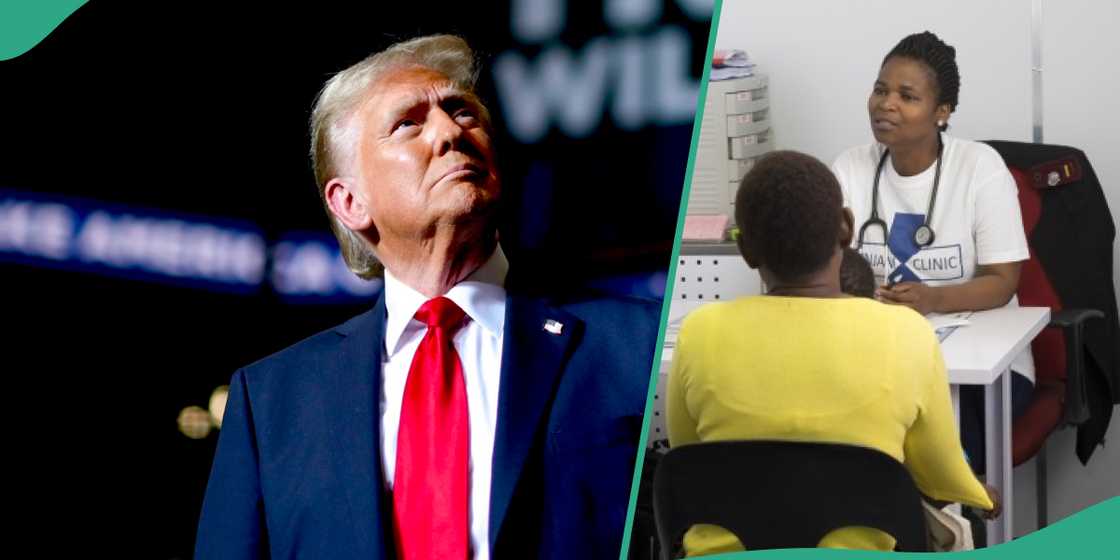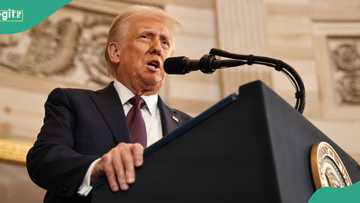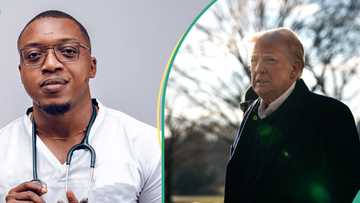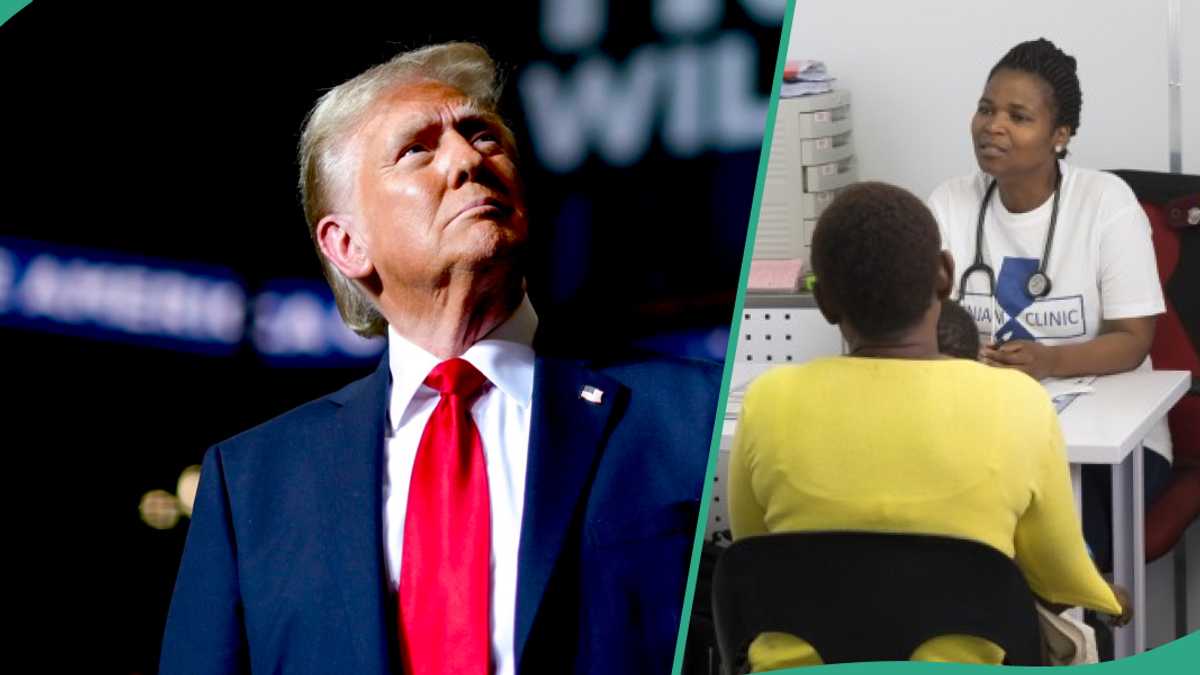In Nigeria, the United States President’s Emergency Plan for AIDS Relief (PEPFAR) has disbursed over $7.8 billion to ensure that all Nigerians living with HIV/AIDS have comprehensive access to quality HIV prevention, care, and treatment servicesThe 47th president of the United States, Donald Trump, has decided to cut funds to support HIV in developing countriesNow that this generosity is being reviewed by the new administration in the United States, Nigerian authorities can embrace innovation, Henzodaily.ng reports
Henzodaily.ng journalist Ridwan Adeola Yusuf has over 9 years of experience covering health matters and global affairs.
FCT, Abuja – Disappointment, dejection, and despair: those were the feelings long-term HIV patient Hassan Hawau (she chose this pseudonym for stigmatisation concerns) felt when news of the Donald Trump administration halting HIV drug distribution in less-developed nations surfaced.
HIV, human immunodeficiency virus, is a disease that attacks the body’s immune system. If not appropriately treated, it can lead to acquired immunodeficiency syndrome (AIDS), an ailment that used to be the fourth biggest killer worldwide.
Read also
Could the US really be sending $50 million worth of condoms to Gaza, as Trump claims?
 The chaos of Donald Trump’s foreign aid freeze implies that now is the time for Nigeria and Africa to take their health systems seriously.
The chaos of Donald Trump’s foreign aid freeze implies that now is the time for Nigeria and Africa to take their health systems seriously.
Photo credits: USAIDAfrica, @realDonaldTrump
Source: Twitter
“I found out in August of 2010 that I had HIV, and the reason for testing was because my partner at the time had heard gossip that I dated someone who was [HIV] positive,” Hawau recalled with a sigh while speaking with Henzodaily.ng. “Hitherto, HIV was sort of a taboo. I came from a suburb area in Niger state, so the disease was typically not for me.”
Hawau was 20 when she discovered it; it took her a very long time to finally accept her status. Now a wife and mother to two beautiful children, Hawau is on HIV antiretroviral (ARV) therapy in Nigeria, an effort supported by the United States (US) government. Nearly 2 million people living with HIV (PLHIV) in Nigeria are on antiretroviral therapy (ART) as of March 2023.
The partnership between the Nigerian government and the US President’s Emergency Plan for AIDS Relief (PEPFAR) funding ensures that people living with HIV are surviving. There are about 1.9 million people with HIV in Nigeria, according to the Joint United Nations Programme on HIV/AIDS (UNAIDS) and the National Agency for the Control of AIDS (NACA). Coverage of HIV treatment in the country in 2021 was around 90%, up from 50% in 2015—thanks to the partnership.

Read also
Trump reverses executive order on ban of emergency HIV treatment funding to poor countries
For Gabriel Alani (he requested confidentiality), he was not sick. He just tested out of curiosity but was shocked to have his result return positive.
Alani, 21, takes PEPFAR-supplied antiretroviral pills daily and it is working.
“Within two months of beginning this medicine, my viral load became inconspicuous,” he told Henzodaily.ng with a bright smile.
Alani eats well and exercises often, and apart from an issue with his cholesterol level (a common side effect of HIV medication), he is in fine health.
PEPFAR’s success
Before the introduction of ARVs, developing countries lost a lot of people, registered so many orphans, and had babies born with HIV. However, collaboration ensured that many lives were saved. With treatment, people can be 20 years with HIV and still be strong and healthy. They can have HIV-negative babies and have a normal relationship.
PEPFAR is deemed one of the most remarkable interventions in history. The initiative had some impacts on the HIV pandemic in the 12 focus countries in sub-Saharan Africa through increasing humanitarian funding, providing access to cost-effective ARV medication, developing improved healthcare infrastructures, and implementing a number of prevention programmes.

Read also
Donald Trump: HIV positive lady breaks silence after US government halts free ARVs for poor countries
Across Nigeria and 54 other countries around the world: PEPFAR is providing lifesaving HIV treatment for 20.6 million people, including 566,000 children.
Although the US has been involved in efforts to address the global AIDS crisis since the mid-1980s, the creation of PEPFAR in 2003 marked a significant increase in funding and attention to the epidemic. Thus, when the new government of Trump released a memo on Friday, January 24, that paused all foreign assistance, the update sent a wave of surprise and confusion in parts of the globe.
The freeze turned out to be abrupt, but its ensuing confusion reigns.
An “emergency humanitarian waiver” to support US-funded HIV treatment in 55 countries, including Nigeria, was approved on Wednesday, January 29. The joint United Nations programme on HIV/AIDS in a statement noted that the US government approved the waiver to allow people living with HIV to continue accessing treatment.

Read also
“People will die”: Medical expert sounds alarm over Trump’s HIV funding shutdown
The waiver is welcome news for the likes of Hawau and Alani whose ARV supply was threatened by the USA directive. A withdrawal of the USA funding would have meant they stand to suffer. PEPFAR Nigeria remains the biggest donor for treatment programmes in the country, as their contributions cover approximately 90 percent of the treatment burden.
Deep concern despite US aid waiver
Due to the fact that not all humanitarian assistance has been cleared by the Trump administration, it remains unclear how exceptions by the current government will affect organisations working with refugees, asylum seekers and migrants.
The situation is causing worry for non-governmental organisations (NGOs) across Africa, the middle-east, Ukraine, and southeast Asia, which began shutting doors, sending staff home and turning away their dependents.
Officials from the US Agency for International Development (USAID), aid groups, and health workers shared that they were unclear what the waiver meant for their work or if it was a full reversal of previous orders.

Read also
Trump stops HIV funding for Nigeria, other developing countries, gives reason
Elizabeth Hoffman, North America executive director (ED) at One – a campaign for financing and debt relief in poor countries, told the Financial Times: “We are encouraged to hear that there is a waiver process for life-saving programmes, but remain concerned that this could get caught up in bureaucratic red tape.”
Tackling HIV in sub-Saharan Africa
The need for far-reaching government-led efforts cannot be overemphasised as the signals from Trump are wake-up calls for Nigeria and Africa.
Amid the uncertainty, Nigeria announced on Friday, January 31, 2025, that it is set to begin production of HIV/AIDS test kits and anti-retroviral drugs.
Speaking at a public event in Ilorin, Kwara state, in the northcentral region, Dr Temitope Ilori, the director-general (DG) of NACA, disclosed that plans are on to begin domestic production of HIV commodities before the end of 2025—a move that could see the end of overreliance on donor support. She explained that domestic production of HIV commodities such as test kits and anti-retroviral drugs was part of measures the government was taking to end AIDS as a public health threat by 2030.
PAY ATTENTION: Сheck out news that is picked exactly for YOU 
Source: Henzodaily.ng
